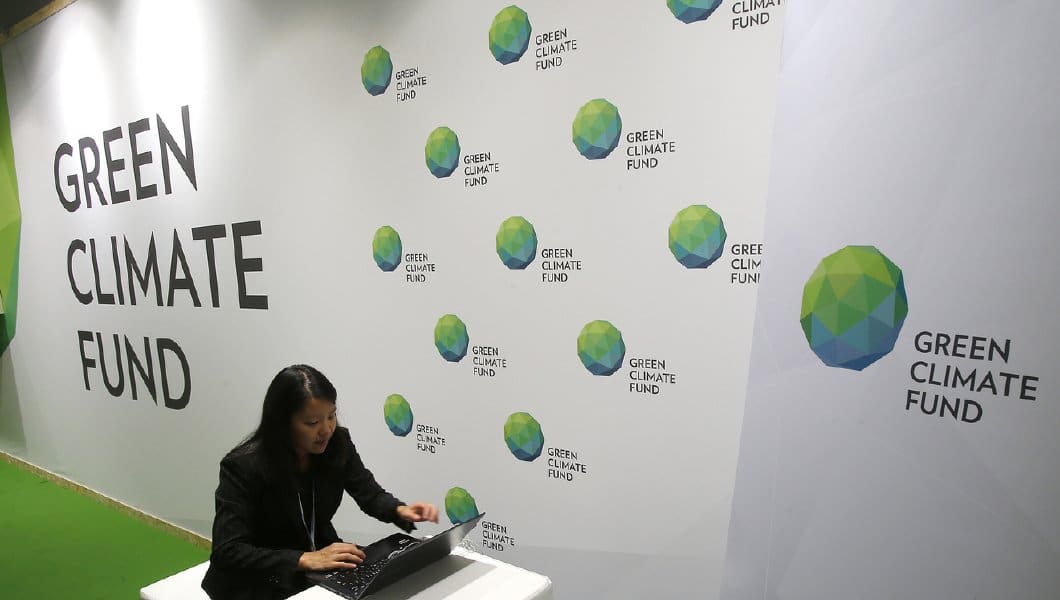- Blog
- Sustainable Economic Systems
- Green Climate Fund
- Starting off right: Making climate finance publicly accountable at the Green Climate Fund
Starting off right: Making climate finance publicly accountable at the Green Climate Fund
by Karen Orenstein, Deputy Director of Economic Policy

Donate Now!
Your contribution will benefit Friends of the Earth.
Stay Informed
Thanks for your interest in Friends of the Earth. You can find information about us and get in touch the following ways:
On the eve of the first board meeting of the UN’s Green Climate Fund, Friends of the Earth U.S. — along with GAIA and the Institute for Policy Studies — has released a report that begins to tackle the conundrum faced by just about every development finance institution: how to design and operate a large-scale fund that actually meets the needs of ordinary people in developing countries in an ecologically sustainable manner. A half century of development finance is littered with examples of what not to do — “development” projects serving primarily to line the pockets of far-away financiers and multinational corporations, often on the backs of the poor and often with grave social and environmental harms. How can we ensure that the Green Climate Fund — an institution for which many of us fought hard to create — is different?
The Green Climate Fund is supposed to be the major channel for delivering money to developing countries for their climate adaptation and mitigation needs. However, even before there is money to distribute, some governments and private interests are trying to make sure that the bulk of the money ends up propping up Wall Street investors and multinational corporations, rather than helping the poor.
The White House and their friends at 10 Downing Street, along with other wealthy governments, are polluting the international climate finance discourse with tall tales of how the private sector will solve all of our woes. The private sector is prescribed as a magic pill for nearly everything that ails society at home and abroad. Most of us didn’t realize it, but, yes, private equity and hedge funds are eagerly knocking on the doors of low income countries, just hoping to get a piece of an adaptation project that is unlikely to turn a profit (sarcasm intended)!
But the proof is in the pudding. Relying on the private sector to meet public needs, like addressing poverty and environmental protection, hasn’t always turned out that well. For example, in assessing the ability of the International Finance Corporation — the private sector lending arm of the World Bank Group — to effectively address poverty, the World Bank’s own Independent Evaluation Group found the IFC’s performance well below par: “The majority of [IFC] investment projects …did not provide evidence of identifiable opportunities for the poor to participate, contribute to, or benefit from the economic activities that projects directly or indirectly support.”
But things could be different for the GCF, and that is the subject of our new report, The Green Climate Fund’s No-Objection Procedure and Private Finance: Lessons Learned from Existing Institutions.
The board of the GCF is charged with developing a transparent “no-objection procedure” to ensure that financing through the GCF is consistent with national strategies, country-driven, and effective. In other words, they are supposed to ensure that GCF projects only be implemented if recipient developing country governments have “no objections” to them. This provision was included in the final days of the last big UN climate summit to respond to widespread concerns that the ability of the private sector to directly access GCF funds could allow investors to bypass the priorities and plans of national governments.
Done right, a no-objection procedure will serve as an essential tool to allow a host country to reject or halt any proposed or ongoing activity within its borders that it determines is in conflict with its development plans and priorities, strategies for addressing climate change, or national laws. A well-designed no-objection procedure will also ensure that the people living within a country, particularly affected individuals and communities, can reject a GCF activity that would harm their interests and livelihoods.
Other international agencies — the Clean Development Mechanism, the International Finance Corporation, and the Global Environment Facility — have procedures that are analogous to a no-objection procedure. Our report examines these other agencies to see what has and has not worked, and we provide policy recommendations to the GCF board on establishing strong rules for the functioning of the no-objection procedure. The bottom-line is that communities and developing country governments, not companies and rich countries, must be in the driver’s seat determining how public money is used for the public good in their countries.
